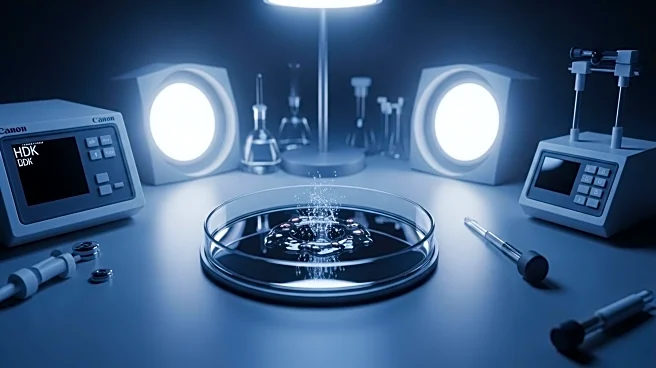What's Happening?
Researchers, including Kate Adamala from the University of Minnesota, are exploring the creation of 'mirror life'—organisms with reversed molecular chirality. This research aims to advance biotechnology and medicine but raises significant biosecurity concerns. Experts, including Nobel laureates, have assessed the risks, concluding that mirror cells could cause irreversible harm by acting as invasive species, potentially leading to lethal infections in humans and ecosystems. The scientific community is considering self-regulation and international treaties to prevent the development of mirror life.
Why It's Important?
The development of mirror life poses unprecedented risks due to its potential to evade natural immune responses, leading to unchecked replication and fatal infections. This research could disrupt ecosystems, as mirror cells would have no natural predators. The scientific community's call for regulation highlights the need for global cooperation to prevent potential biosecurity threats. The implications extend to public health, environmental stability, and ethical considerations in synthetic biology.
What's Next?
While the creation of mirror cells is not yet possible, researchers are synthesizing mirror proteins and enzymes, with estimates suggesting complete mirror bacteria could be developed within a decade. Discussions among scientists and ethicists are ongoing, with meetings planned in Manchester and Singapore to explore regulatory measures. The potential for international treaties similar to the Biological Weapons Convention is being considered, although political challenges may hinder progress.
Beyond the Headlines
The ethical implications of mirror life research are profound, as it challenges the boundaries of synthetic biology and raises questions about humanity's role in manipulating life forms. The potential for mirror life to alter ecosystems and human health necessitates a reevaluation of scientific priorities and the establishment of robust ethical guidelines.










